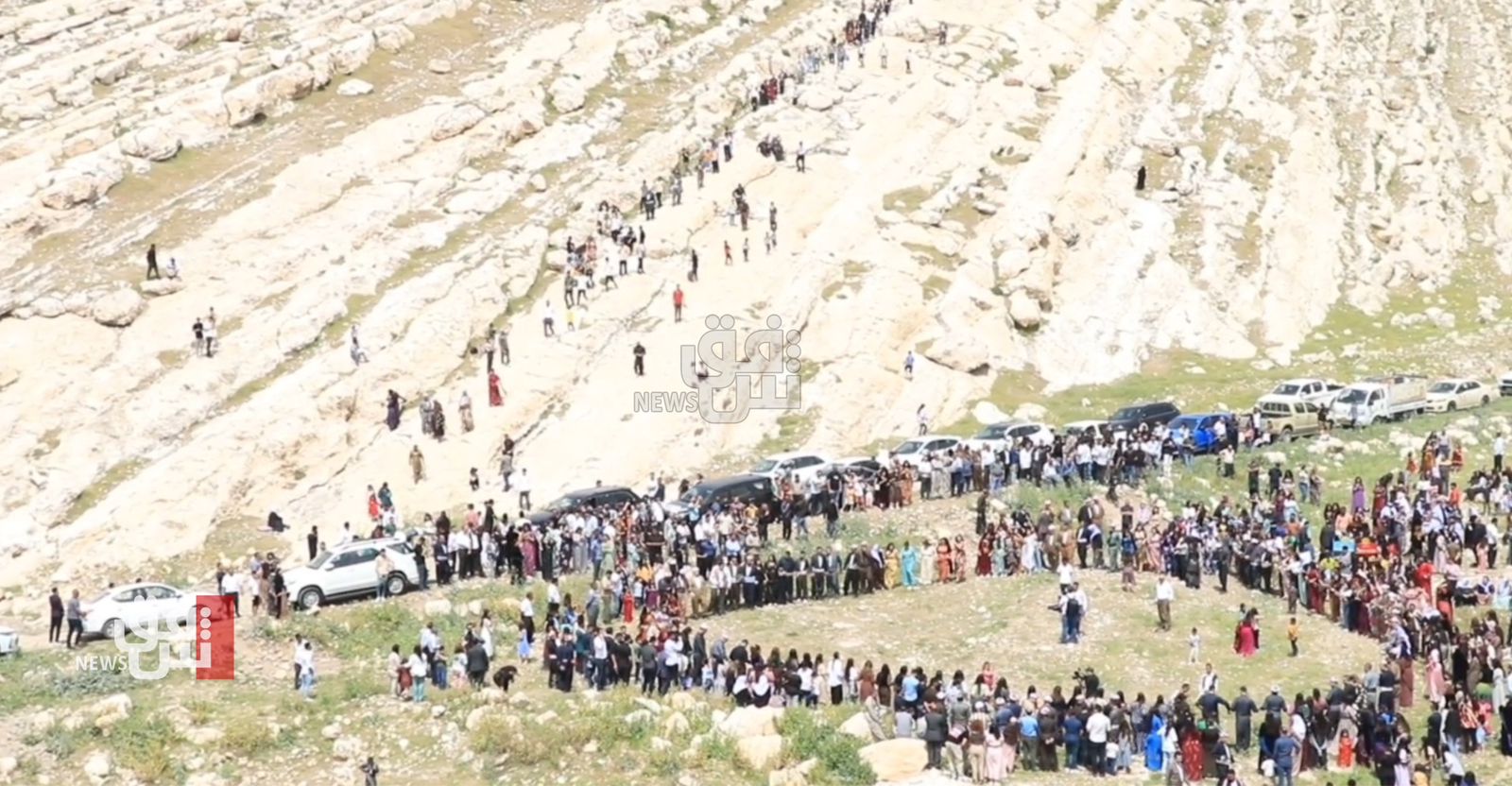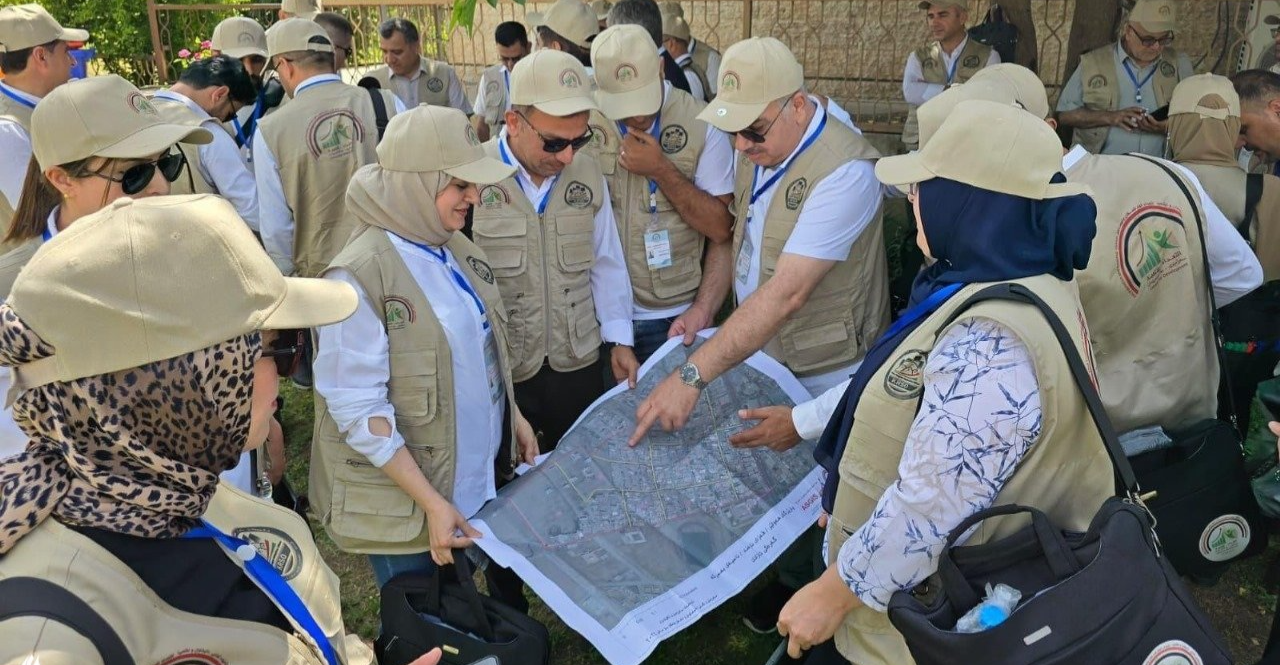Yazidis in Duhok observe annual Karajal pilgrimage

Shafaq News/ Hundreds of Yazidi residents from the Shariya complex and surrounding towns in Duhok Governorate, Kurdistan Region of Iraq, participated in the annual "Karajal Pilgrimage" on Wednesday.
The pilgrimage involves a trek of over 5 kilometers on foot to the peak of Mount Karajal, which overlooks the village of Sina.
Shafaq News Agency documented the event, capturing scenes of participants gathering at the summit, performing traditional dances accompanied by drums and flutes, and engaging in prayers and religious chants.
A key aspect of the ceremony is the symbolic act of each participant taking a branch from a tree near the shrine upon concluding the pilgrimage. Following tradition, men respectfully bid farewell to the shrine by turning their backs as they descend the mountain, while women follow in an orderly manner.
Birhat Qadi, a participant, explained the significance of the pilgrimage.
"This is one of the important religious rituals for Yazidis, held every year on the second Wednesday after our New Year," he said. "Hundreds from Shariya and nearby villages participate."
Another participant, Alia Salo, described the concluding festivities. "After descending, we gather in the square for dances and other rituals," she said. "Residents of Shariya then invite guests from outside the community to share a meal at our homes."
The Karajal Pilgrimage is one of 45 such events observed by Yazidis in various regions where they reside.
The Yazidi faith combines elements from various ancient Middle Eastern beliefs. Eid Hajjin, the Yazidi festival that falls in early September, celebrates Abraham, a prophet they have in common with Judaism, Islam, and Christianity.
On 3 August 2014, Islamic State group attacked the Yezidi community in Sinjar, northern Iraq. Thousands were imprisoned or killed, and close to 100,000 people fled to Mount Sinjar. The UN has referred to the attack as a genocide.
The Yezidis is one of many religious minorities in Iraq. At the centre is the teaching about a fallen angel who is forgiven by God and set to govern the Earth in God's place.
It is this story of a fallen angel as a figure of worship that has led to the more than a century-long persecution of the Yezidis. In both Christianity and Islam, the devil is presented as a fallen angel, which has led them to be perceived as devil-worshippers. This perception was used by ISIS group to justify their atrocities against this minority group.
Nearly 7,000 Yezidi women were enslaved and brutalised by ISIS fighters, many of them repeatedly victims of sexual assaults. They were forced to convert to Islam, and many were forcibly married off to ISIS fighters.




